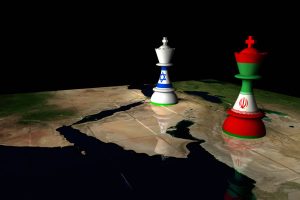ihadists Trying to Dislodge Bangladesh’s Secular Government by Lawrence A. Franklin

- It seems that either al-Qaeda, with or without the Islamic State, has been linking up with Bangladesh’s indigenous radical networks.
-
- If the Hasina government cannot restore a sense of normalcy, the booming Bangladeshi economy is likely to stagnate, Western corporate investment may dry up, and liberal technocrats probably will seek security elsewhere. If this happens, Bangladesh’s minorities will feel even further isolated.
- “They believe that we are all going to hell, and no matter how they treat us, that they will all go to heaven.” — Former Catholic seminarian.
Friday’s Islamic terrorist attack in the swankiest section of the Bangladesh’s capital of Dhaka, in which 20 people were murdered, had been expected by the country’s law enforcement services. When this attack took place, the government had been in the midst of a nationwide crackdown on known terrorist sympathizers. The police had made hundreds — some reports claim thousands — of arrests. They had also seized explosives, firearms, machetes and jihadi tracts. Most of the arrests consisted of members of indigenous, outlawed jihadist groups such as the Jamaatul Mujahedeen Bangladesh, Hizb ut-Tahrir, Harakat-ul Jihad-al Islami Bangladesh (HuJI-B), and Ansarullah Team.

Bangladeshi soldiers toss a grenade into a restaurant in Dhaka, in which Islamic terrorists murdered 20 hostages, July 1, 2016. |
There have also been also other assassinations in the last few months. Most of these murders were of religious minorities: a Hindu priest, a Buddhist nun, the owner of a Catholic grocery store. Bloggers and students critical of Islamic extremists, and who opposed an increasingly enforced version of Islam, were murdered as well, often hacked to death, along with liberal intellectuals and a LGBT couple.
The government of Prime Minister Sheikh Hasina had continued to deny that either al-Qaeda or the Islamic State had cells in Bangladesh, even as the incidents increased in number and grew more widespread. The government, in keeping silent about the escalating abuses, was reportedly afraid to “provoke a backlash” — which came anyhow.
It seems, however, that either al-Qaeda, with or without the Islamic State, has been linking up with indigenous radical networks.[1] The goals of these groups are different. According to a former mid-level Islamist civil servant living in exile in the United States, opposition parties are determined to prevent Bangladesh’s popular Prime Minister Sheikh Hasina from remaining in power.[2] He also implied that one of the parties, the Jammat-e-Islami, which opposes Bangladesh’s governing coalition of 19 political parties, has ties to domestic terrorist networks.[3]
Meanwhile, some in the government’s coalition, led by the Bangladesh Nationalist Party (BNP), would apparently like to move closer to Pakistan and away from the present administration’s pro-India tilt. Pakistan’s Inter Survives Intelligence (ISI) is active in efforts to move Bangladesh away from its pro-India stance. It was the ISI, with the Pakistani-supported terrorist group, Lashkar-e-Taiba, that “aided Mumbai terror attacks” in India in November 2008, and there are reports that Lashkar-e-Taiba recruits agents in Bangladesh.[4]
Pakistan’s principal objective, with al-Qaeda and the Islamic State, is presumably to end the officially secular tradition of Bangladesh and establish a regime that elevates Islam above other religions. They likely also want to establish Sharia courts and legislate blasphemy laws, as in Pakistan.
If the Hasina government cannot restore a sense of normalcy in the country, the booming Bangladeshi economy is likely to stagnate, Western corporate investment may dry up, and liberal technocrats probably will seek security elsewhere. If this happens, Bangladesh’s minorities will feel even further isolated, providing a pretext for Bangladesh’s military to seize power under the rubric of “restoring order” — a theme Bangladesh’s generals have employed in the past.
One Catholic Bishop interviewed stated that, “We Christians always depend upon the goodwill of our Muslim neighbors. We are no longer confident that we can trust in this sentiment.”[5]
A former Catholic seminarian was more blunt: “They believe that we are all going to hell and no matter how they treat us, that they will all go to heaven.”[6]
Dr. Lawrence A. Franklin was the Iran Desk Officer for Secretary of Defense Rumsfeld. He also served on active duty with the U.S. Army and as a Colonel in the Air Force Reserve, where he was a Military Attaché at the U.S. Embassy in Israel.

























